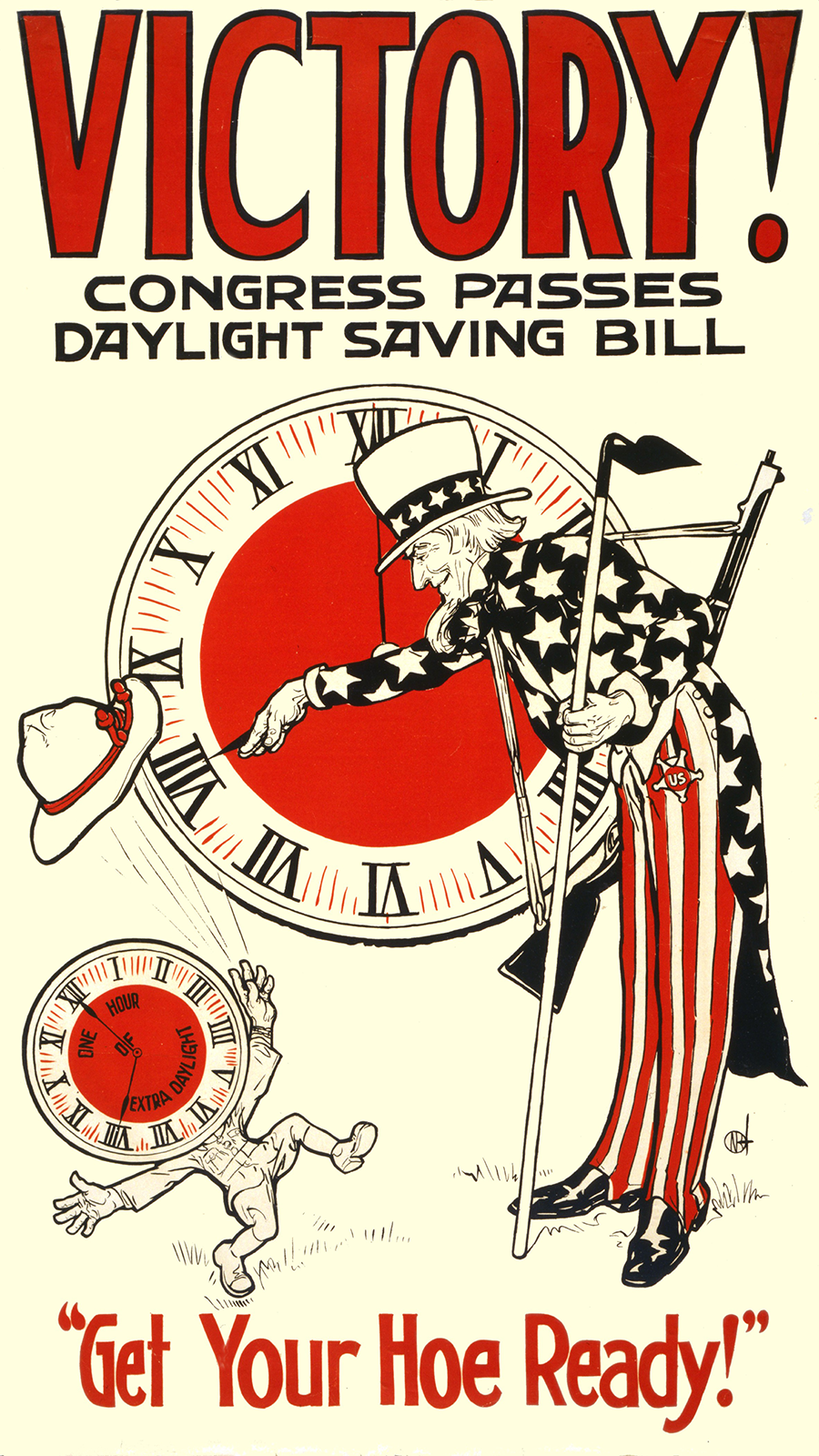U.S. President Wilson embraced the idea during WWI
By Diego Flammini
News Reporter
Farms.com
It's believed farmers were supporters of daylight saving time because it provided them with an extra hour to complete fieldwork.
But that's not the case at all.
U.S. President Woodrow Wilson proposed the extra hour of daylight to save electricity in 1918 during the First World War.
But farmers hated that idea because it meant a change in field conditions.
“The sun, not the clock, dictated farmers’ schedules, so daylight saving was very disruptive,” according to History.com. “Farmers had to wait an extra hour for dew to evaporate to harvest hay, hired hands worked less since they still left at the same time for dinner and cows weren’t ready to be milked an hour earlier to meet shipping schedules.”
In fact, farmers were so against DST that they led the opposition to the idea. And in 1919, Congress voted to repeal daylight saving time.

An ad celebrating an end to daylight saving time
Photo: Curiosity.com
“The farmers were the reason we never had a peacetime daylight savings time until 1966,” Michael Downing, author of Spring Forward: The Annual Madness of Daylight Saving Time, told National Geographic in 2013. “They had a powerful lobby and were against is vociferously.”
Other myths related to daylight saving time
From Readers Digest
MYTH: In 1916, Germany was the first country to practice daylight saving time.
FACT: Residents of Port Arthur, Ont., which is now Thunder Bay, began turning the clocks back as early as 1908.
MYTH: Daylight saving time makes people healthier.
FACT: A 2008 study in the New England Journal of Medicine discovered a higher incidence of heart attacks in the first three weeks of DST.